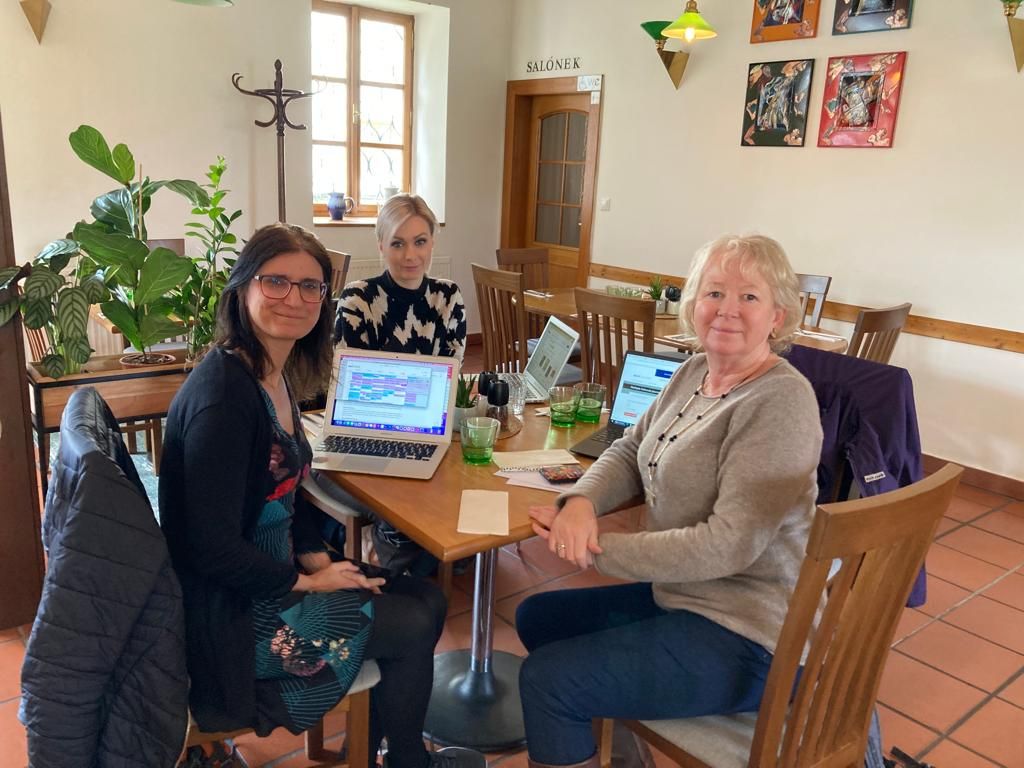Bursary-supported publication suggests long-term benefits of preventative programme
Our travel bursary supported this collaboration to co-write a study paper on the effectiveness of a multidimensional programme for people newly diagnosed with MS. This involved in-person physical and psychological therapies, followed by six months of self-guided activities. The study findings have important implications for future practice.
What did the study look at?
People recently diagnosed with MS often report fatigue, pain, depression and feelings of anxiety. Several types of programmes have been designed to minimise these symptoms, but there is limited research evidence to show how well they work. Previous studies have tended to measure only short-term benefits without investigating whether these can be sustained in the longer term.
The study explored the benefits of a ‘complex’ multi-dimensional preventative programme. Consisting of both psychology-led therapy and physiotherapy, this was designed to reduce the impacts of mental and physical symptoms in people recently diagnosed with MS. As well as helping participants accept their MS diagnosis, the programme aimed to build confidence and skills to self-manage the elements of MS that were likely to affect their daily lives.
Participants took part in a range of face-to-face interventions over six months. For the rest of the year, they continued with self-guided therapy and the self-management strategies they had learned.
Improving research through collaboration
Research collaborations are important to promote quality research to inform best practice in MS. This collaboration between Professor Kamila Rasova of Charles University Prague and UK-based physiotherapist Angela Davies Smith came about through RIMS, the European network for Rehabilitation in MS, which hosts conferences and special interest groups. Angela was not involved in the study itself, but brought her expertise in co-writing research papers on Multiple Sclerosis to help the team prepare the study paper for publication.

Face-to-face interventions
Introductory workshop
This was a detailed explanation of the various therapy elements to explain the programme to participants and make it easier for them to embed new techniques into their daily lives.
Group psychology
Monthly 2-hour group psychology sessions using cognitive-behavioural techniques focused on:
- the experience of diagnosis
- defining new, realistic, meaningful life goals
- strategies to reach goals, evaluate behaviour and gain self-efficacy over fatigue and other MS symptoms
- managing negative emotion and thinking styles related to MS
- communicating with family, friends and professionals, and asking for help.
Musculoskeletal treatment
A full neurological assessment followed by three individually tailored therapy sessions involving soft tissue treatment, exercise and breathing control
Aerobic training - Three individually tailored sessions on a bicycle ergometer gradually increasing in intensity from one session to the next. Participants were also encouraged to carry out similar levels of aerobic activity twice weekly.
Motor program activating therapy (MPAT)
Four sessions to improve movement and coordination using a method called neuroproprioceptive facilitation. Participants were taught how to correct their posture while sitting, standing and walking. They also learned how to engage their muscles to stabilise joints, realign the body and move more naturally.
Findings and implications
Participants reported improved fatigue levels and satisfaction with life at the end of the six months and at the follow-up after a year. Those who attended more sessions showed greater benefit.
This was a small, single group study, meaning there was no control group. However, the results suggests that sustained benefits can come from:
- adopting a comprehensive approach early in the disease course
- providing strategies to help people make appropriate lifestyle choices and manage therapeutic activities themselves.
It’s not possible to determine the effect of individual programme elements, but it is likely that much of the benefit was due to the combination of cognitive behavioural approach and aerobic training.
The study took place in the Czech Republic, and while the face-to-face component was shown to be beneficial, it was time-consuming for both therapists and participants.
“This research contributes to understanding on how treatments can commence and improve life quality for newly diagnosed people living with MS. Unfortunately, such a level of face-to-face contact between patient and healthcare professional is not currently feasible within the confines of the NHS. So it might be appropriate to look at how such programmes can be part-delivered via video conferencing and similar methods".
Travel bursary beneficiary, Angela Davies Smith
People with newly diagnosed Multiple Sclerosis benefit from a complex preventative intervention—a single group prospective study with follow up
Authors: Kamila Řasová, Natália Hrušková, Kateřina Berchová Bímová, Angela Davies Smith, Tereza Škodová, Marie Bičíková, Lucie Kolátorová, Ivana Štětkářová, Ľuba Brožek, Alena Javůrková, and Gabriela Angelová
See full article in Frontiers in Neurology

